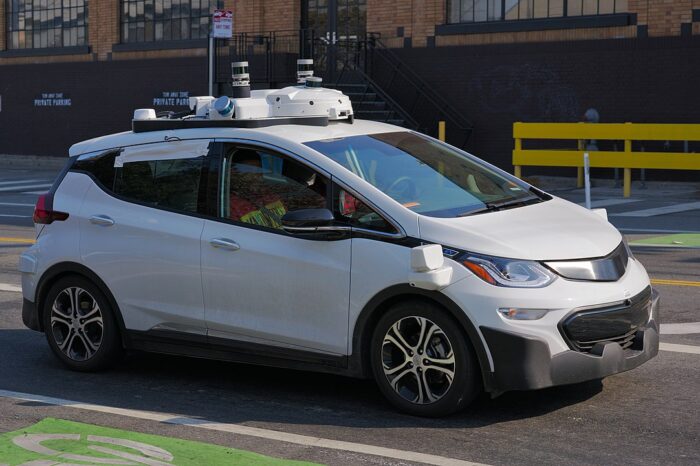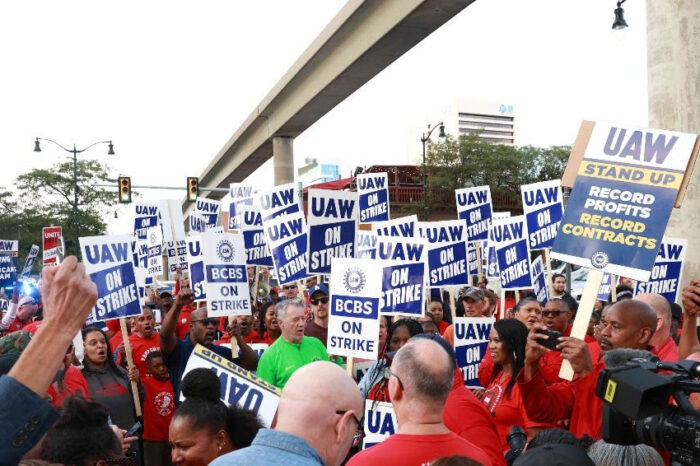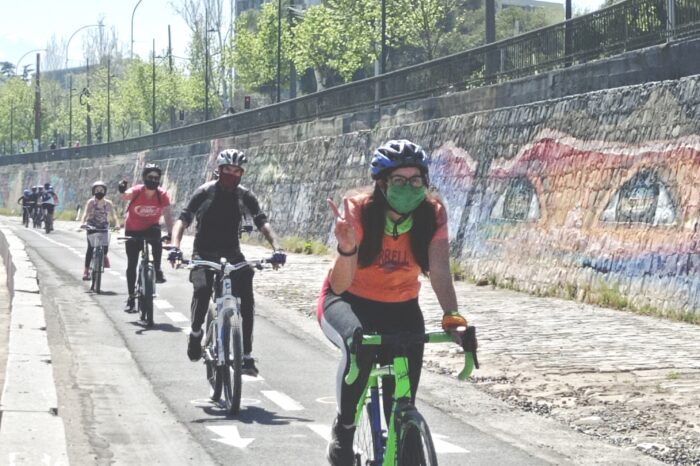Another week and another attempt by President Joe Biden to find Republican support for his big infrastructure deal. He’s trimmed his proposed package all the way down to $1 trillion and floated an alternative minimum corporate tax at 15% to pay for it. But Republicans have countered with a $300 billion deal and are still not interested in any talk of tax increases. And yet, key swing vote Joe Manchin says he has “all the confidence in the world” that a bipartisan deal is possible. OK…
Meanwhile, the news seems to be all electric, all the time: Ford’s EV sales increased 184% year-over-year in May, Fiat is committing to 100% EVs by 2030 and, in a small sign of things to come, 7-Eleven announces plans to roll out 500 EV chargers. Meanwhile, Toyota once again casts shade on EVs, saying it’s not ready to commit fully to gas-free cars.
![]()
Biden comes down to $1 trillion: In an effort to strike a deal with Republicans in the Senate, President Biden is offering an infrastructure plan with $1 trillion of new spending, less than half the $2.25 trillion the White House originally proposed. And instead of proposing to pay for it by hiking the corporate tax rate from 21% to 28%, he has suggested establishing a corporation version of the alternative minimum tax — his proposed rate is 15%. But it looks like Republicans aren’t crazy about that either.
Instead, GOP negotiators have updated their counter-offer, which totals just over $300 billion, about $50 billion more than their previous offer. The president dismissed the offer as woefully inadequate.
And yet, Joe Manchin, the most conservative Democrat in the Senate and a crucial swing vote in the evenly-divided chamber, says he has “all the confidence in the world” that a compromise is possible. Manchin has said repeatedly that he wants to see a bill that can get at least 60 votes in the Senate, the usual threshold required to avoid a filibuster. Other Democrats have argued in favor of using the “reconciliation” process that would allow the bill to pass with a simple majority (and therefore wouldn’t need any Republican support).
Ford’s tremendous May: America’s #2 automaker sees its stock rise 7% last Thursday on news of strong EV sales in May. The Detroit giant sold 4% more vehicles (161,725) than it did during the same month last year, but it sold 184% more EVs (10,364). Sure, EVs only account for 1/16th of its total sales, but investors are betting that that will grow when Ford starts selling the electric version of the F-150 –– the most popular vehicle in America.
A greenway stimulus: 200 environmental and mobility organizations are pushing Congress to include at least $10 billion for pedestrian and bike trails in any approved infrastructure deal. Even in Biden’s original $2.3 trillion proposal, there was no designated money for active transportation. Yes, let’s make this happen.
Biden explores EV recycling: In its push for the U.S. to lead in electric mobility, the Biden administration is exploring ways to recycle the millions of batteries that will be thrown away each year in an all-EV future. The federal government can help by supporting research.
Toyota’s hybrid approach: The Japanese auto giant announces its 2022 lineup at its North America headquarters in Plano, Tex., spotlighting its new electric SUV, the BZ4X, and the new hybrid Sienna, its popular minivan. Company leaders brush off concerns that Toyota is playing catch-up on EVs and suggest that hybrids may be a wiser focus until charging infrastructure becomes more readily available.
Renault’s new EV arm: The French automaker is creating a new entity, Renault ElectriCity, that will manufacture EVs from three existing Renault plants in northern France.
A small sign of things to come: 7-Eleven, the iconic American convenience chain, announces that it will add 500 EV charging stations around the U.S. by the end of 2022. Convenience stores typically don’t make much money on gas, but they offer it to attract customers who will buy snacks, beer and tobacco in the store. The same may eventually be true of charging stations.
Finally, good news about parking garages: In search of new space to land and launch its electric air taxis, eVOTL startup Joby Aviation is teaming up with REEF Technology, the Miami-based group that has been acquiring parking lots as part of a separate effort to set up neighborhood kitchen and delivery hubs.
Another all-EV pledge: Fiat says it will be all-EV by 2030. That’s the same promise Volvo made earlier this year. Fiat’s parent company, global auto giant Stellantis, has made a much more modest commitment: by 2030 35% of its cars in North America and 70% of its cars in Europe will be EVs. The difference in approach between the two continents highlights the diversity of Stellantis’ portfolio. In Europe its sales are largely driven by European brands like Citroen, Peugeot and Fiat, while in the U.S. it relies heavily on gas-guzzling former Chrysler brands such as Jeep, Ram and Dodge.
Taller batteries, shorter cars: A British EV battery designer says vertical EV batteries can significantly increase range. Freddy Page-Roberts’s concept is for a battery to be placed vertically between the front and rear seats — with the rear seats facing backwards. The design allows for a reduced wheelbase and therefore a shorter and more aerodynamic car.
![]()
Aurora inches towards SPAC: The Pittsburgh-based AV startup is in talks to merge with Reinvent Technology Partners Y at a $12 billion valuation. Reinvent Y is one of three blank check companies started by Linkedin co-founder Reid Hoffman, Zynga founder Marcus Pinkman and managing partner Michael Thompson. Another one is in the process of merging with Joby Aviation, the eVOTL startup. One thing that is unusual about this deal is that Hoffman is already an Aurora board member, a position he earned when Greylock Partners, a VC firm where he is a partner, invested in the startup three years ago.
The newest Google Maps option: People in the Phoenix suburbs can now open up Google Maps and book a robo-taxi with Waymo, the Google-owned AV startup.
Driverless 3-wheelers? A startup focused on 3-wheel vehicles for short-distance travel and delivery raises $4.3 million in seed funding. San Francisco-based Faction Technology now has prototypes for the motorcycle-style vehicles. The idea is for a combination of autonomous technology and remote operators to use the vehicles for driverless delivery, but the company also envisions people renting (and driving) the vehicles themselves to make short trips within cities.
Cruise gets a permit: California regulators grant the GM-backed AV startup a permit to give passengers rides without a human safety driver behind the wheel. However, the permit from the California Public Utilities Commission does not allow Cruise to charge passengers. To do that, Cruise needs the greenlight from the state DMV. So far only rival Nuro has gotten the OK to deploy a pay-per-ride robo-taxi service in the Golden State.

Shakeup at Spin: The Ford-owned scooter-sharing company announces a number of changes, including a new CEO, the introduction of e-bikes and a new strategy that leverages its strong compliance record to forge more exclusive partnerships with cities. Meanwhile, its parent company is considering spinning it off, no pun intended.
It’s the safety, stupid: A survey of residents of five large cities –– New York, Los Angeles, Paris, London, Berlin –– shows that perceived danger is the most common reason people don’t cycle. Forty-three percent of respondents said that increased safety would make them more likely to bike and relatedly, 34% said they would bike more if there were more bike lanes available.
The downside of the Covid bike boom: Bicycle manufacturers are struggling to keep up with the booming demand prompted by the pandemic. U.S. sales rose 78% year-over-year in Q1 of 2021 but many of those who put in orders are waiting months to get their bikes. Some industry analysts predict that inventory won’t be back to normal until 2023.
![]()
Thomas Reuters Foundation takes a look at Bogota, Colombia’s effort to crowdsource ideas for reducing transportation-related carbon emissions.
The New York Times wonders whether efforts to remove highways can repair American cities.
The Week takes a look back at how well-intentioned environmental regulations killed the station wagon…and created the SUV.
Matt Stoller comments on the district attorney of Washington D.C.’s lawsuit against Amazon, which accuses the tech giant of inflating prices to offset the cost of “free shipping.”

62 roles in 6 locations: That’s what’s available at Aurora Innovation, the autonomous trucking company that is poised to go public via SPAC any day now. Jobs are available in San Francisco, Seattle, Pittsburgh, Dallas, Mountain View, Calif. and Bozeman, Mont.
Fix the world bike shortage at Trek: It’s a great time to work in the bike industry. Not only is business booming, but there’s clearly still room to grow, as demonstrated by the struggles the industry is having responding to the record demand induced by the pandemic. Trek, the Wisconsin-based bike brand, has jobs galore around the U.S. and in Europe.
Have a job listing that’s perfect for the CoMotion community? Please send it to jcraver@comotionglobal.com.
Enjoy the Week in Review? Get it delivered directly to your inbox by signing up for the CoMotion>>NEWS newsletter.






